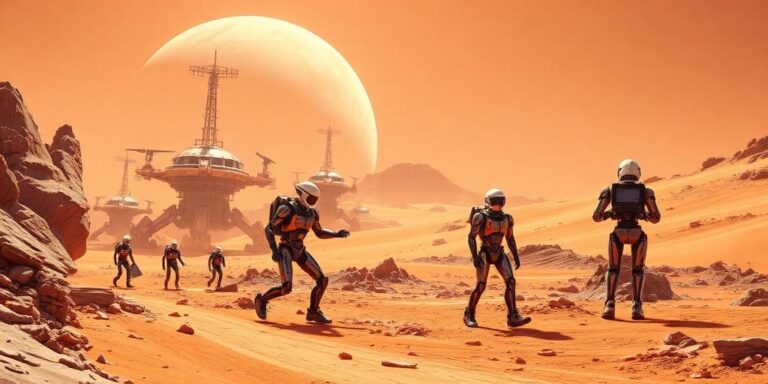The Role of AI in Deep Space Colonization (2040 Vision)
As we look ahead to 2040, deep space colonization is no longer a distant dream but a tangible goal. Artificial intelligence (AI) will be critical in making this vision a reality. This article explores the multifaceted roles AI will play in enabling and sustaining human settlements beyond Earth.
Autonomous Navigation and Robotics
One of the primary challenges in deep space travel is the vast distances involved and the inherent risks. AI-powered autonomous navigation systems will be essential for spacecraft to navigate through space, avoiding hazards such as asteroids and radiation belts. These systems will use real-time data from sensors to adjust course and speed, ensuring safe and efficient travel.
Robotics, guided by AI, will perform tasks that are too dangerous or complex for human astronauts. These robots can construct habitats, mine resources, and conduct scientific experiments, significantly reducing the risks and costs associated with human labor in space.
Life Support Systems
Maintaining a habitable environment in deep space is crucial for long-term colonization. AI will manage and optimize life support systems, including air purification, water recycling, and food production. These systems will use machine learning algorithms to predict and respond to changes in environmental conditions, ensuring the health and well-being of the colonists.
Resource Management
Efficient resource management is critical for the self-sufficiency of deep space colonies. AI will play a key role in optimizing the use of available resources, such as water, energy, and raw materials. AI-driven systems can monitor resource levels, predict shortages, and allocate resources accordingly, minimizing waste and maximizing efficiency.
Healthcare and Medical Support
Providing healthcare in deep space presents unique challenges due to the limited availability of medical professionals and equipment. AI-powered diagnostic tools and robotic surgeons can assist in diagnosing and treating illnesses and injuries. AI can also provide personalized medical advice and monitor the health of colonists, ensuring early detection of potential health issues.
Communication and Data Processing
Effective communication and data processing are essential for coordinating activities in deep space. AI can enhance communication systems by optimizing signal transmission and reducing delays. AI algorithms can also process vast amounts of data collected by sensors and scientific instruments, providing valuable insights into the space environment and potential resources.
Conclusion
The role of AI in deep space colonization is indispensable. From autonomous navigation to resource management and healthcare, AI will enable humans to establish and sustain settlements beyond Earth. As we move closer to 2040, advancements in AI technology will continue to drive progress in deep space exploration and colonization, paving the way for a future where humanity is a multi-planetary species.




